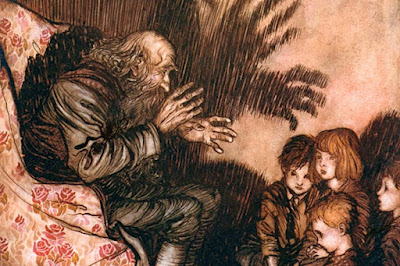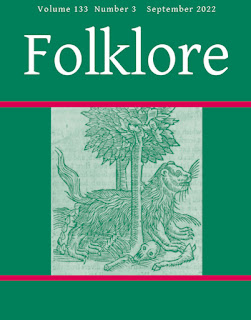I came across several websites and articles about folklore recently in my continuing search for information about how people were impacted by natural and socio-economic conditions of the past.
Both
weather and politics have often played important roles in the development of or
changes to culture and traditions. Among these are the stories, music, myths,
fairy tales and education of children that reflected the living conditions of
past times. But there were also changes to material culture such as building styles
or handmade toys and to the celebration of events like Christmas, weddings and
other social gatherings.
Weather and climate, such as the shift to the cold period of the Little Ice Age would certainly have resulted in different activities, with historical information about the balmy weather of the Medieval Warm Period later told in stories, poetry or music. Many of the old fairy tales, proverbs and idioms, expressed in written work as well as in artwork, carry folklore messages and may have resulted from the experiences of the authors during hard times, and passed down in creative ways.
Programs
for folklore studies, or folkloristics, are available in many countries and
institutions. There is a good summary and reference information on Folklore studies on Wikimedia. As stated on the webpage, “The
importance of folklore and folklore studies was recognized globally in 1982 in
the UNESCO document "Recommendation on the Safeguarding
of Traditional Culture and Folklore."
The Folklore Society, based in London, “is a learned society, based in London, devoted to the study of all aspects of folklore and tradition, including: ballads, folktales, fairy tales, myths, legends, traditional song and dance, folk plays, games, seasonal events, calendar customs, childlore and children's folklore, folk arts and crafts, popular belief, folk religion, material culture, vernacular language, sayings, proverbs and nursery rhymes, folk medicine, plantlore and weather lore.”
Other
countries and regions also have similar organizations and research groups, some
national in scope and others representing regions: American Folklore Society, groups in Canada, Australia, Germany, Japan, and
other parts of the world.
There are
many books and articles about folklore available. Many were written decades ago
but are now available again through reprinting or digitization. Check out the general inventory or the special webpages of Archive.org: “The Open Folklore
Web Archive is a growing curated collection of websites relevant to the study
of folklore to ensure that dependable website information about folklore will
always be available. Our collection emphasizes the websites of academic
folklore departments and programs, and of public-sector and independent
folklore organizations.”
One of my
blog colleagues, James Tanner, wrote about the subject back in 2015 with regard
to genealogical studies (Folklore, Oral Tradition and
Genealogy, 9
February 2015). He pointed out that sometimes “oral traditions get started
from a particularly dramatic or traumatic event in an ancestor's life. On
occasion, the oral tradition may arise as a result of a particularly important
event that happened at the time your ancestor lived and the ancestor becomes
associated with the event through a process of transference, i.e. the ancestor
lived at the time of the event therefore the ancestor must have been a
participant in the event. This type of situation is particularly prone to occur
when participation in the event carries some sort of notoriety.”



No comments:
Post a Comment